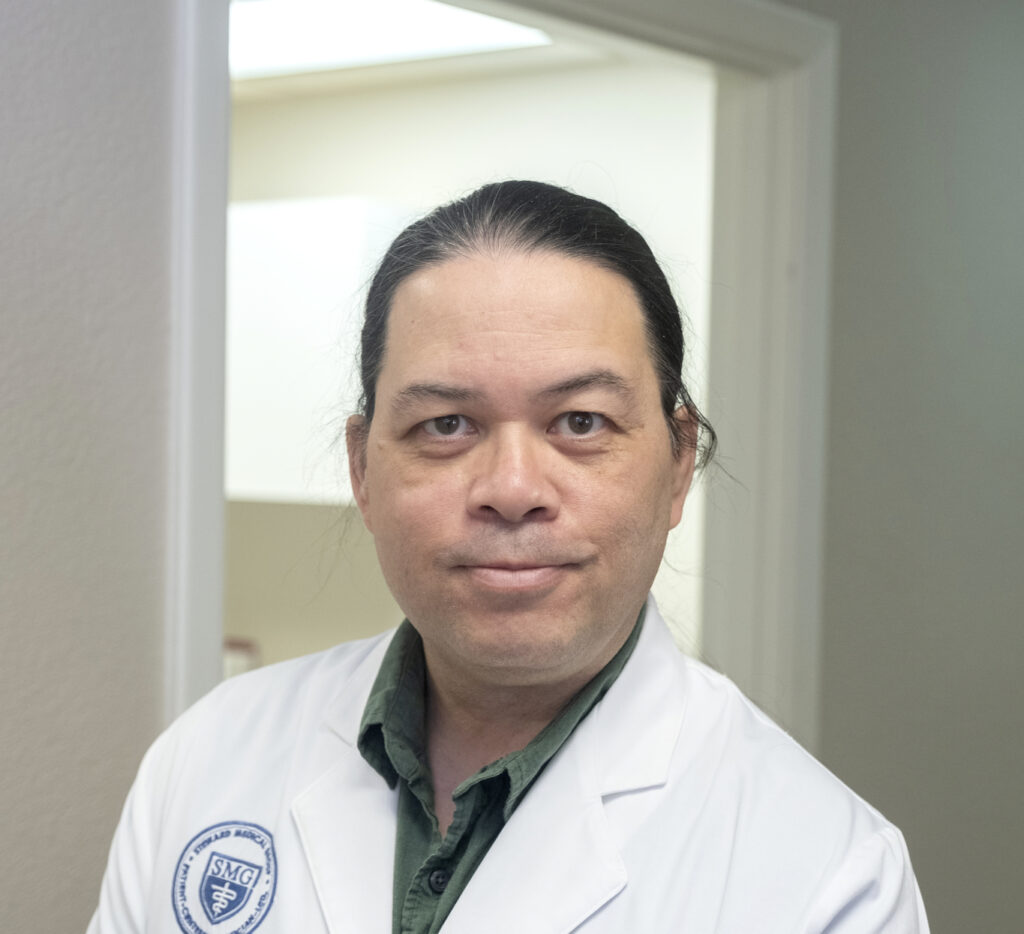If you suffer from GERD and think it will go away by itself, you’re doing yourself a disservice. According to the experts, that’s not going to happen.
GERD (gastroesophageal reflux disease) is a chronic medical condition that occurs when stomach acid backs up into the esophagus – the tube connecting the mouth and stomach.
Manuel Domagtoy, nurse practitioner at Steward Health Care’s Steward Gastroenterology Associates, believes that lifestyle rather than genetics or other factors is the main reason so many people in the U.S. suffer from the disease. “Obesity increases abdominal pressure. And consuming alcohol and fried and spicy foods, particularly late at night, all aggravate the problem,” he said. (In 2023, 41.9 percent of adults in the U.S. were considered obese.)
You can also avoid or lessen flare-ups if you:
- Eat smaller meals.
- Eat in a relaxed environment.
- Sit up straight while eating.
- Keep your head up when eating.
- Avoid physical activity after eating.
- Stop smoking.
GERD is one of the most common gastrointestinal disorders, affecting approximately 20 percent of the U.S. population, both young and old. Domagtoy says that most adults who have it first showed signs in their childhood.
Two common symptoms of GERD are heartburn and regurgitation. Many people experience both although it’s possible to suffer from one without the other.
Heartburn is the most common symptom and can feel like a sharp, painful burning in the upper abdomen or middle of the chest, behind the breastbone. It can rise up from the lower tip of the breastbone toward your throat and may be worse when you eat, bend over or lie down.
Regurgitation is the backflow of stomach contents through your esophagus and into your throat or mouth. This may cause you to taste food or stomach acid.
Other symptoms may include:
- nausea
- difficulty or pain while swallowing
- recurring sour or bitter taste in the mouth
- chronic cough
- hoarseness
- sore throat
- chest pain, or tightness in your chest or upper abdomen that may wake you up in the middle of the night
Although many people assume GERD is uncomfortable but not harmful, Domagtoy warns that if the disease is untreated, it can result in a potentially pre-cancerous condition called Barrett’s esophagus.
According to Mayo Clinic, if you have Barrett’s esophagus, the flat pink lining of the esophagus has become damaged by acid reflux, which causes the lining to thicken and become red.
Between the esophagus and the stomach is a critically important valve, the lower esophageal sphincter (LES). Over time, the LES may begin to fail, leading to acid and chemical damage of the esophagus – GERD. In some people, GERD may trigger a change in the cells lining the lower esophagus, causing Barrett’s esophagus, which is associated with an increased risk of developing esophageal cancer.
Although the risk is small, it’s important to have regular checkups with careful imaging and biopsies of the esophagus to check for precancerous cells (dysplasia). If precancerous cells are discovered, they can be treated to prevent esophageal cancer.
When should you see a doctor? Domagtoy says people usually don’t look for medical treatment until they’ve exhausted everything else, such as over-the-counter remedies. But that isn’t the most beneficial course to take.
Harvard Health, the newsletter of Harvard Medical School, says that by seeing your doctor early, the physical cause of GERD can be treated and more serious problems avoided. They suggest you check if you have symptoms such as:
- chest pain
- loss of appetite
- persistent vomiting
- problems swallowing or pain while swallowing
- signs of bleeding in the digestive tract, such as vomit that contains blood or looks like coffee grounds or stool that contains blood or looks black and tarry
- unexplained weight loss.
Of the more than 8 million emergency room visits for chest pain each year, GERD accounts for over half the cases in which actual heart problems are ruled out. It is more common among older adults, obese persons, and pregnant women.
Domagtoy says that a healthy diet and weight control can really help. “By taking greater interest in health and not ignoring their symptoms, people can improve. Choose to make better food choices – it’s largely in your control.”
Manuel Domagtoy is a nurse practitioner specializing in gastroenterology and internal medicine at Steward Health Center’s Steward Gastroenterology Associates. He received his nurse practitioner degree from Florida Atlantic University’s Medical School. His practice is located at 3745 11th Circle, Suite 101, Vero Beach. The phone number 772-567-4825.

